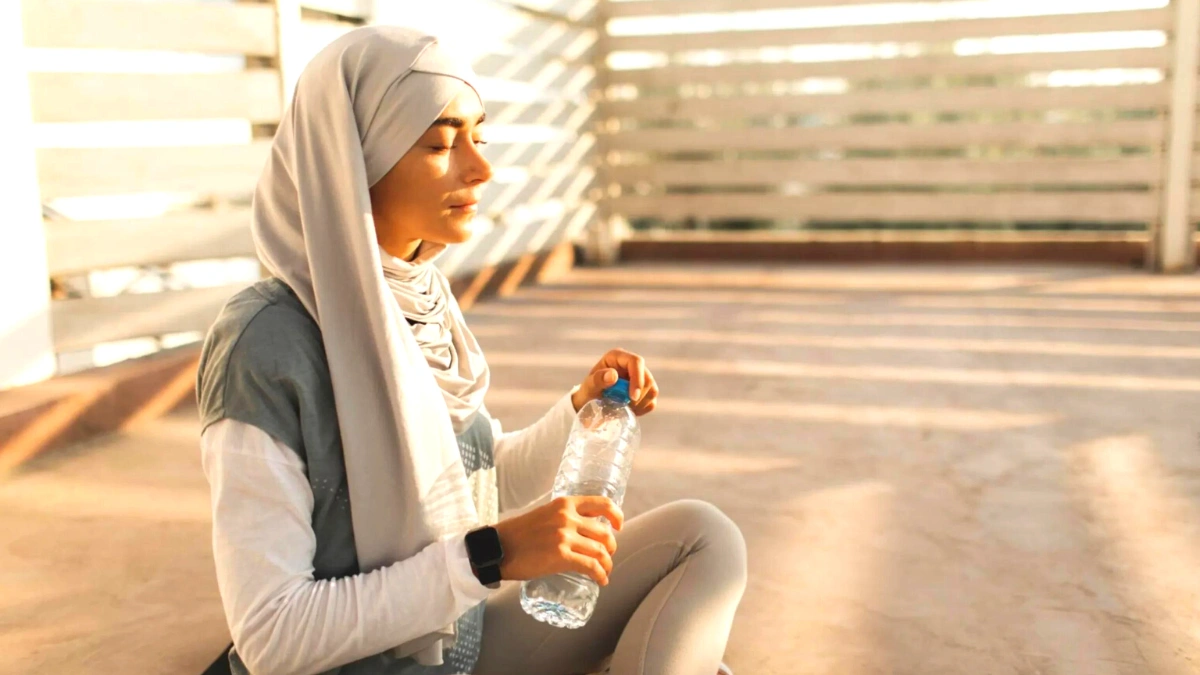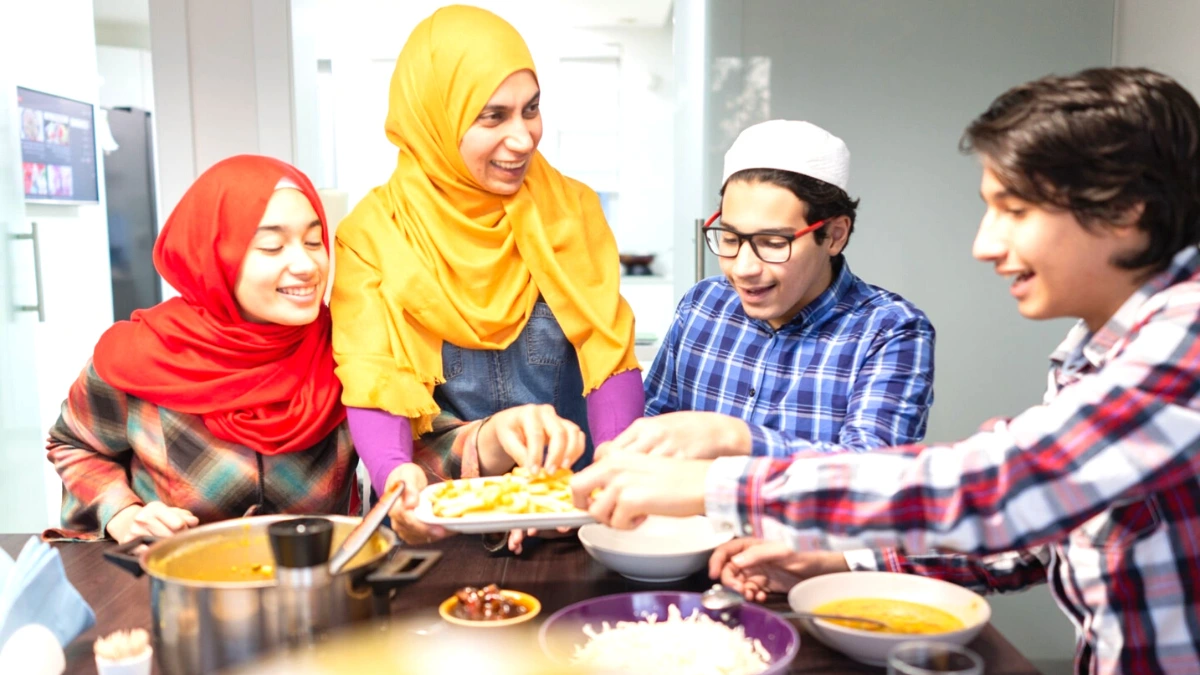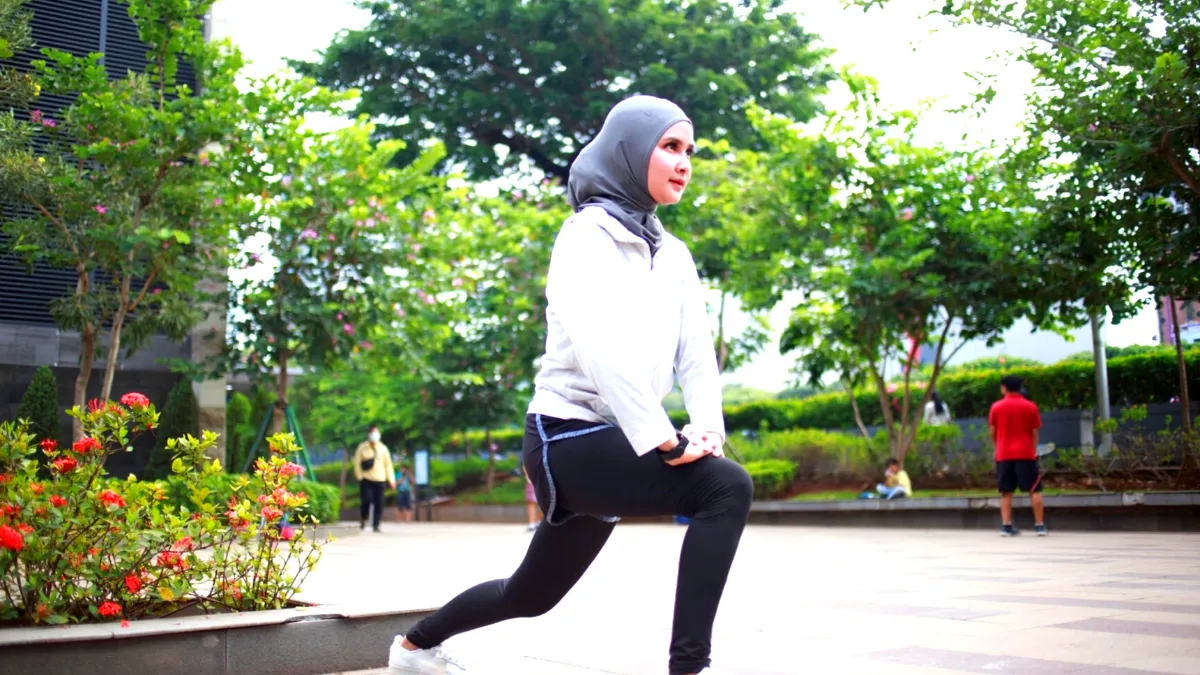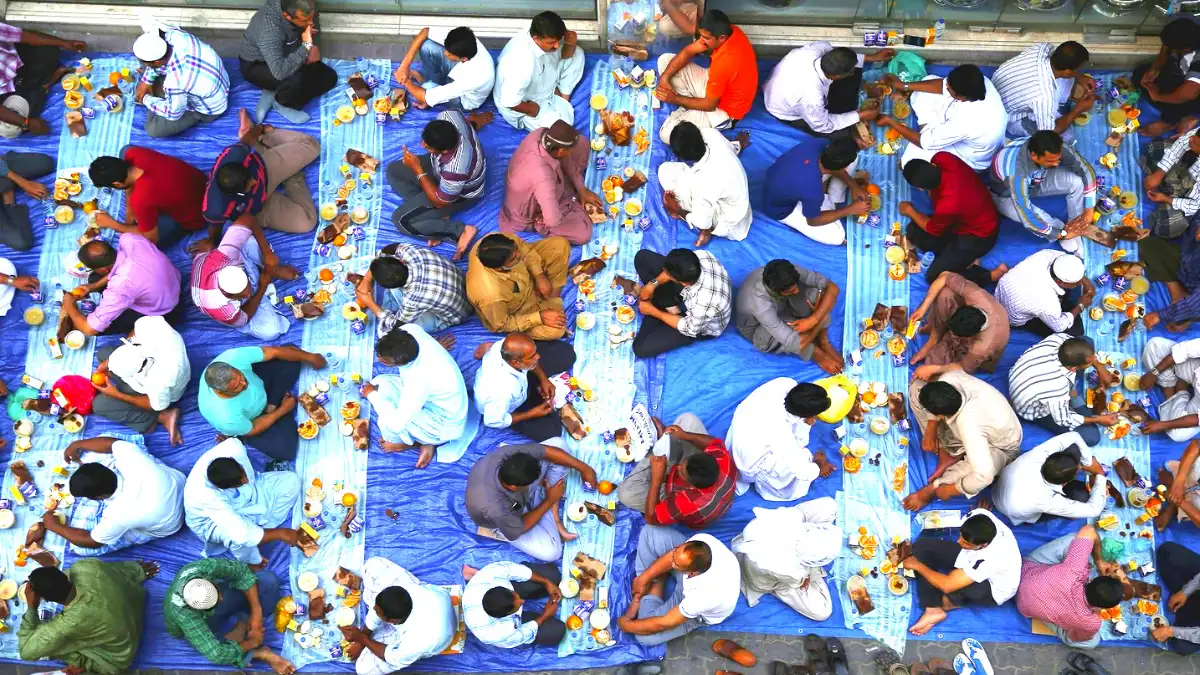Article
Tips To Stay Healthy And Hydrated During Ramadan 2023

Ramadan is a month-long period of fasting in the Islamic calendar, also known as the holy month. During this month Muslim fast for nearly 12 hours, from dawn until sunset. This month is quite challenging for the people living in the hot regions, as heat stress and dehydration are commonly occurring problems during this month.
How to stay hydrated during Ramadan?
To overcome such challenges, it is important to stay hydrated, eat a balanced diet, avoid intensive exercise, and much more. In this article, we will discuss 7 tips that would help you to stay hydrated and healthy during the holy month of Ramadan.
1. Stay hydrated
It is quite important to stay hydrated during Ramadan, as fasting can cause dehydration in hot weather that can further lead to various health issues like dizziness, headaches, and fatigue which can make it quite difficult for people to perform prayers and daily tasks.

To stay hydrated it is quite important to drink plenty of fluids during the non-fasting hours. It is recommended to drink at least 8 glasses of water a day, but you can also choose the fluids accordingly. Caffeinated and sugary drinks are the major cause of dehydration so it is best to avoid them and opt for some alternatives like fruit juices, herbal tea, and water.
One of the best sources is Coconut water to replenish the minerals and body fluids lost during fasting. Milk is also a great source as it contains nutrients like vitamin D, calcium, electrolytes, and water.
Also, one should try to avoid salty food, as it usually increases thirst and causes the body to retain water. One should include fresh vegetables and fruits in their diet instead.
2. Plan meals carefully
It is important to plan all the meals carefully during Ramadan to ensure that you are consuming nutritious and balanced meals that offer all the important energy sources and nutrients for your body to function properly.

Fasting usually causes a change in eating habits that can impact your overall health and might cause digestive problems. Therefore, it is recommended to consume a nutritious and balanced diet like fruits, lean protein, healthy fats, and whole grains. Also one should avoid eating fried and heavy food as such means can cause digestive problems like bloating and indigestion.
Suhoor ( the pre-dawn meal) is a crucial meal as it offers the body the nutrients and energy that help people to sustain fasting the whole day. Hence one should consume whole grains, proteins, lean meat, and eggs. Whereas during the iftar ( the meal to break fast) one should include a balanced meal.
During the Iftar don’t overeat as it can aid digestive discomfort. According to health experts, you should have breakfast with water and dates as that would help to restore the body’s energy levels and hydration. After that, you can consume a balanced meal of vegetables, fruits, healthy fats, proteins, and carbohydrates.
3. Exercise during non-fasting hours
Regular exercise during the nonfasting hours can help you to maintain good health during the time of Ramadan, as it is quite challenging to stay active in such hot and humid temperatures.

It is quite important to stay active as it reduces overall stress, maintains great health and enhances the energy level. During the nonfasting hours, you can keep yourself busy with small exercises so your body gets sufficient energy levels and is always hydrated during the fasting hours. Few of the exercises that you can try are walking, yoga, and light cardio exercises.
If you want to do high intensive exercise then you need to make sure that you have enough energy levels so it does not cause any harm to your health and well-being.
One should not eat. It is not recommended to exercise during the peak heat hours, instead one should exercise in the late evening or early morning when the temperature is cooler. Moreover, if you feel lightheaded or tired, you can take a break and rest in a shaded and cool area.
When you start to exercise, do low-intensity exercise first and then gradually increase the duration and intensity. Light cardio exercises like swimming, cycling, and brisk walking can improve endurance and cardiovascular health.
If you don’t want to go out and exercise then you can do basic stretching and yoga as those can be done in shaded and cool areas or indoors.
4. Take breaks when needed
Along with exercising it is also necessary to take breaks and rest whenever needed to avoid heat stress, dehydration, and exhaustion. Taking breaks would help you to overcome the strain put by fasting on your body and help you to conserve your energy levels and avoid overexertion.

One should listen to their body and take breaks whenever they are lightheaded, dizzy, or tired. Resting in shaded and cool areas can help you to stay hydrated and reduce heat stress.
One can practice relaxation techniques, take short naps and do deep breathing exercises to feel energized and refreshed. One should avoid intensive activities that can cause strain on the body and increase the overall risk of heat stress and exhaustion. Instead one should save these activities for low-temperature times of the day.
Overall it is important to plan the day according to fasting hours and prioritize the activities during the nonfasting hours so you avoid overexertion and maintain your energy levels. You can also connect with healthcare providers and get a personalized plan too for your individual needs.
5. Wear appropriate clothing
Wearing the right clothes during the fasts is quite important to reduce heat stress and regulate body temperature. Breathable and loose clothes are recommended during such times as they keep the body cool and are comfortable during the hot weather, especially when someone is fasting.

One should wear light-colored and loose-fitting clothes made using natural fabrics like rayon, linen, and cotton. Such fabrics are lightweight and breathable leading to better air circulation, which reduces the risk of overheating and keeps the body cool.
If you wear restrictive and tight clothes then they can trap heat and make it difficult for you to regulate body temperature and might cause heat stress. It is recommended to avoid clothes made using synthetic fibers that make you feel unformattable and trap heat.
In case of going out for work, you can wear a hat or scarf, to prevent sunburns and heat.
6. Use cooling methods
It is quite essential to stay hydrated and cool during the hot weather as it would save you from dehydration and heat stress during fasting hours. A lot of cooling methods are available that you can try to keep yourself cool and regulate your body temperature.

The best way to keep yourself cool is to have cold showers and baths. This reduces the risk of heat stress and helps to maintain a low body temperature. However you should avoid taking the hot showers as they increase the body temperature and make you feel uncomfortable.
Using an air conditioner or fan can make you feel cool during fasting.
Further, you can use fans and Air conditioners to keep the temperature low during hot climates. Also it is advisable to keep curtains and blinds closed as they can heat the room due to sunlight entering indoors.
There are also a lot of cooling products available such as ice packs, and cooling towers that help to stay comfortable and reduce the body temperature wherever you go out.
Light-colored and loose clothes also keep the body cool, whereas tight clothes can cause the body to retain heat and seat that can cause heat stress and dehydration.
Last but not least one can have cold food and fluids like smoothies and juices to keep the body cool from the inside. Eating cold food like yogurt, fruits, and salads can keep body temperature low.
7. Seek medical advice if needed
In the medical field, heat stress is a serious problem that can make it difficult for the body to regulate body temperature, increasing body temperature. Also, it can cause symptoms like vomiting, nausea, headache, dizziness, fatigue, and dehydration. In most serious cases it can also lead to heat stroke or heat exhaustion which is quite life-threatening.

In case anyone faces such a problem, then it is important to seek medical attention. Ignoring such symptoms or daily medical treatment can cause severe health complications.
To identify heat stress symptoms, one should be aware of common symptoms like dehydration, nausea, vomiting, dizziness, and fatigue. On experiencing any of such symptoms one should drink plenty of fluids, and take sufficient rest.
One should monitor the body temperature at regular intervals, if it is too high then it can be a symptom of heat stress. During such a situation one should seek medical advice immediately.
Significance of Ramadan and the challenges of fasting in hot weather
As per the Islamic Calendar, Ramadan is the ninth month in which Muslims across the whole world observe fasting until sunset. Fasting in the month of Ramadan signifies the 5 Pillars of Islam and is a well-known way to purify the mind and body, show solidarity towards the people who are less fortunate, and develop self-control.

During the Month of Ramadan 2023, Fasting is usually quite challenging due to the hot weather. The humidity and heat can cause various health problems like fatigue and dehydration. Muslims living in hot countries can face even more challenges due to long hours of fasting and exposure to high temperatures. Hence it is quite important to take extra care to stay healthy and hydrated during Ramadan.
Despite challenges, this is the best of spiritual renewal and growth. One should focus on connecting with community and family, charity, and prayers. But at the same time, it is important to follow the tips discussed below to stay fit and in good well-being.
Ramadan is the holy month of reflection, spiritual growth, and fasting. However, fasting in such hot and humid temperatures can be quite challenging and might cause heat stress.
To stay fit and avoid any problems like dehydration and heat stress one should take care of their well-being and health. It can be easily achieved by planning meals carefully, staying hydrated, taking breaks when needed, using cooling methods, wearing appropriate clothing, and seeking medical advice if heat stress symptoms are overused.
By following such tips one can have a safe and healthy Ramadan that can keep the mind and body both active and in good condition. It is quite important to prioritize well-being and health during the month of Ramadan to have a rewarding and fulfilling experience.
Frequently Asked Questions
As per the fasting rules, one cannot have any drink including water during the fasting hours. However, one should drink water, coconut water, and several other hydrating fluids during the non-fasting hours to stay hydrated and avoid drinks that contain sugar and caffeine.
If the medicine is too important to treat a specific medical condition such as hypertension and diabetes, then one can take it during fasting hours. It is quite important to consult with a religious authority or a doctor if you have any questions about medications.
Yes, one should never stop doing exercises during the month of Ramadan as it keeps you active. However, there are some necessary precautions that one should take like doing light exercise during the cool hours of the day.
A healthy and balanced diet during the month of Ramadan is quite difficult to maintain especially when high-fat and high-calorie foods are prevalent. However, you can still enjoy traditional food and maintain a healthy diet by making some changes. One should focus on eating vegetables, fruits, and lean proteins and limit the quantity of fatty and fried foods.
It is not recommended for pregnant women and children to fast as they can experience health effects and require different nutritional needs. Fasting might cause low blood sugar levels, malnutrition, and dehydration.